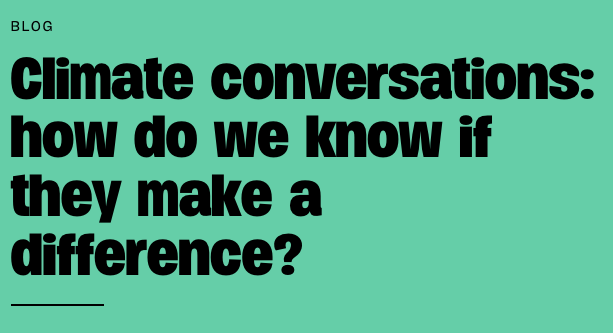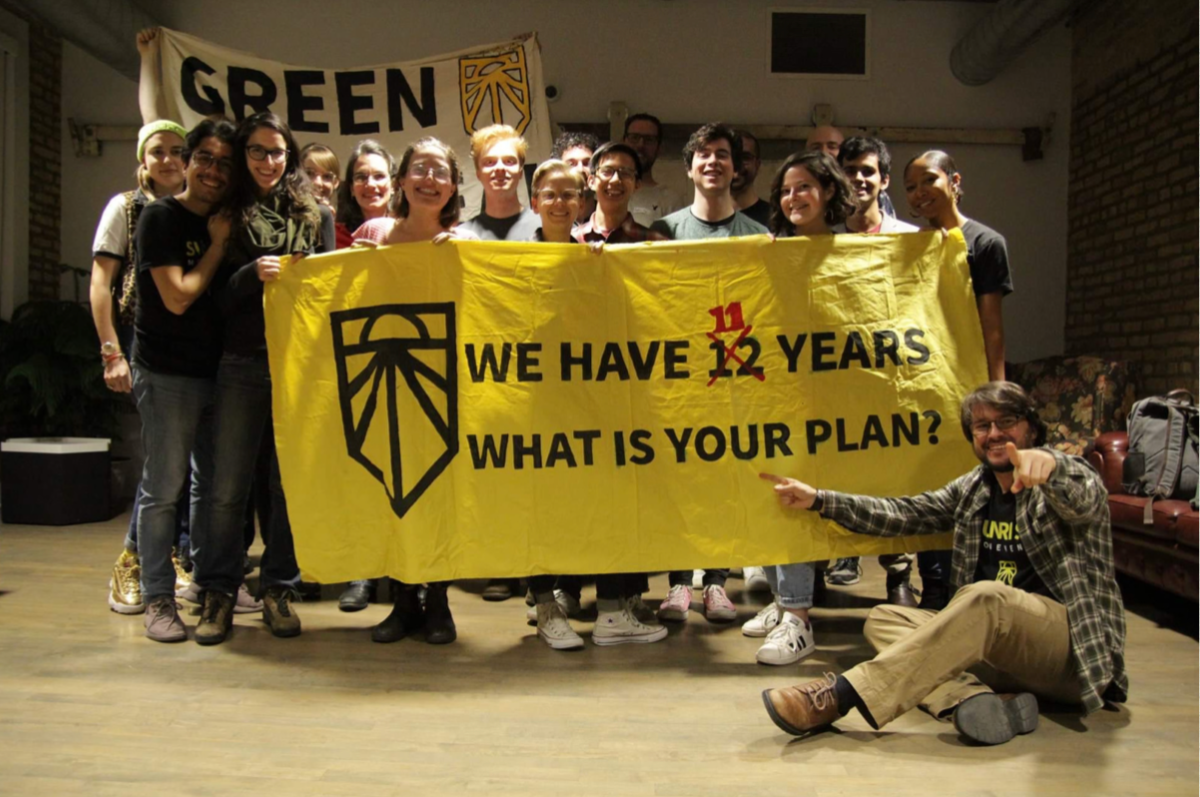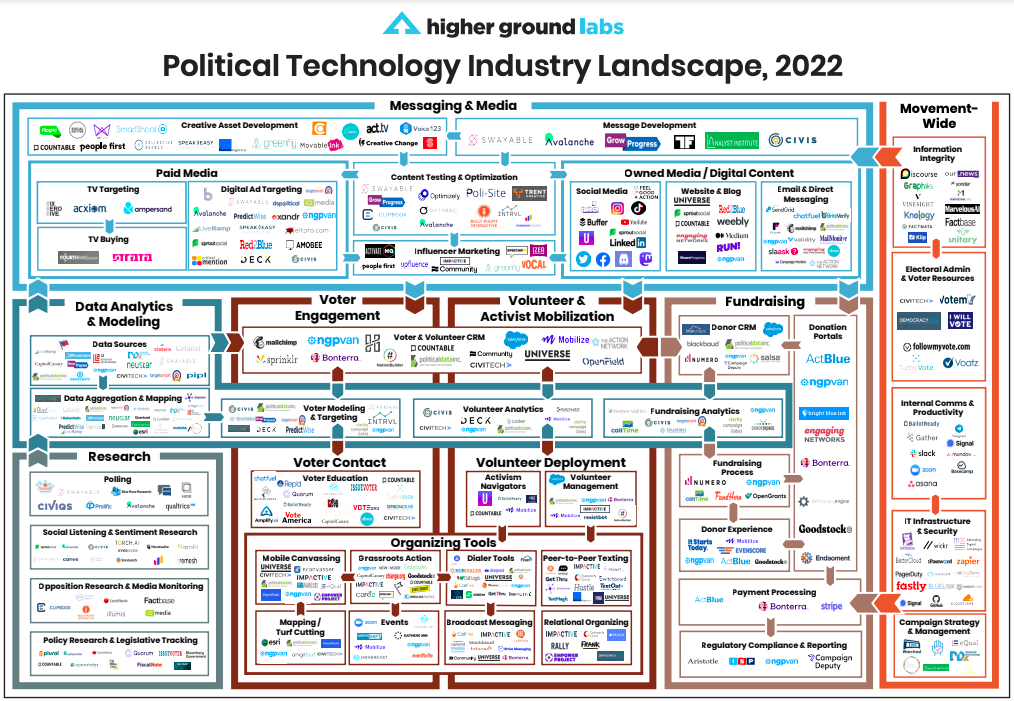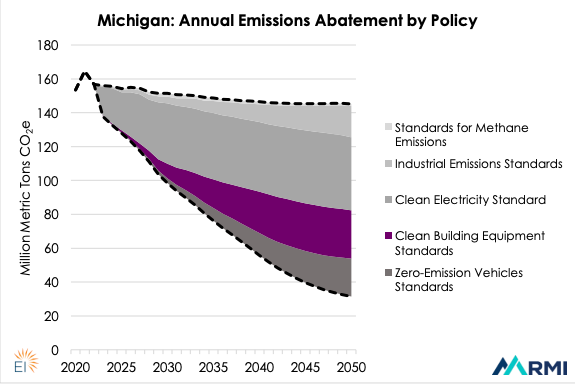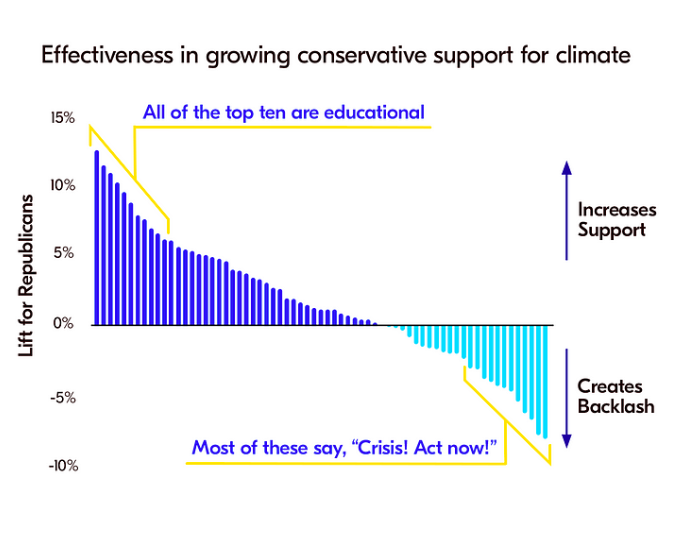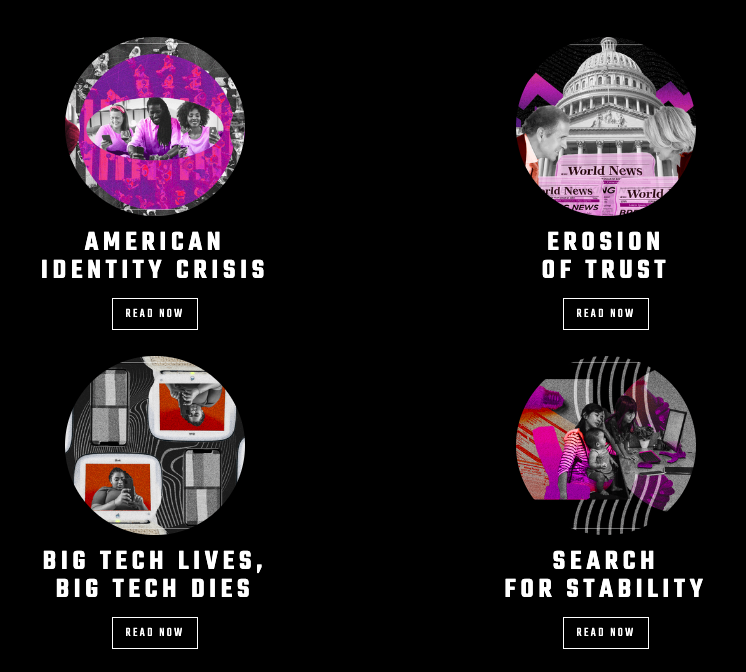Resources
Search below for resources covering the intersection of climate engagement, social science and data analytics.
RESULTS
Climate conversations: how do we know if they make a difference?
Conversations about climate may be an important part of the advocacy toolkit. Larger US has recruited a cohort to be trained on these conversations. The trainees, after being trained, feel significantly better able to have climate conversations. However, evaluating the impacts of the trainees having conversations outside of the training program is difficult. The goal is to understand if the conversations affect the beliefs of people in the conversations, as well as the broader impact on society.
Reflections, Lessons and Learnings on Multiracial, Cross-Class Movement Building
From studying past social movements, the Lab has learned that the transformational change necessary to equitably address the climate crisis is more likely to occur when multiracial, cross-class (MRXC) movements* claim their collective power, expand the imagination of what’s possible, and organize and mobilize people at scale. In the last 5 years, the Sunrise Movement has demonstrated a commitment to learning and practice on multiracial, cross-class movement building. This week’s newsletter features reflections and lessons from Lab member and Deputy Organizer Director at Sunrise, Dejah Powell. As a Lab member yourself, you can read the full report* on how Sunrise has been working to build a movement across race and class, and the implications and learnings based on those efforts. This report was developed as part of the Lab’s Climate Justice Microgrant Program.
2022 Political Tech Landscape Report
This report offers a succinct view of the progressive technology landscape that can be used for future election campaigns. Campaigns flock to streaming services as more begin to accept political ads. Influencer marketing has achieved institutional adoption. Political text messages can reach a tipping point. Campaigns are starting to purchase their tech earlier in electoral cycles. Tech has improved at the down-ballot level, but campaigns sometimes still lack affordable and effective basic tools. Large company mergers of infrastructure for key tactics (such as NGP VAN) raises questions among practitioners regarding the future of core voter data systems.
Top State Energy Policies To Cut Carbon Emissions
Just five policies across the economy can dramatically cut state greenhouse gas emissions. These include clean electricity standards; zero-emission vehicle standards; clean building equipment standards; industrial efficiency and emissions standards; and standards for methane detection, capture, and destruction. This report evaluates emissions trajectories and policy impacts for six states: Louisiana, Michigan, Minnesota, New Mexico, Pennsylvania, and Wisconsin. These states have widely varying emissions profiles. For example, Louisiana’s emissions are dominated by the industrial sector, while in Michigan, the building sector is a significant contributor. In New Mexico, home to significant oil and gas extraction, methane is a major source of GHG emissions.
Green Dash Northeast
Green Dash Northeast is a free tool that displays state-level data related to emissions and energy in the Northeast. This tool may be useful for staff at environmental NGOs, state and local governments, and community-based organizations seeking to better understand the status of climate and energy initiatives throughout the region. Green Dash Northeast aggregates publicly available data to present useful emissions and energy-related metrics. Metrics are displayed consistently for all Northeastern states, which allows for meaningful comparisons between states and additive regional values. Categories of data include: greenhouse gas emissions, electric energy, energy efficiency, non-electric fuels, battery storage, clean energy jobs, energy burdens and rates.
Climate Deep Canvassing Report
Kentuckians for the Commonwealth ran a Climate Crisis Deep Canvassing Project in Louisville, Bowling Green, and Hazard, Kentucky where they knocked on thousands of doors and had more than 600 conversations with low-income communities and communities of color. They developed a written report that synthesizes the lessons, themes, and best practices from their on-the-ground experience to inform future canvassing trainings and program design.
Supported by the Climate Advocacy Lab's Climate Justice Microgrant Program.
Twelve months of climate communications data
Here are 12 of Potential Energy’s favorite climate insights from 2022 data. First, human stories beat abstract concepts, every time. Second, science — and scientists — still matter a lot. Third, conservatives moved their climate beliefs… but education is critical. Fourth, what politicians love to say . . . had some real believability issues. Fifth, social, collectivist actions were much easier to create than individual behavior changes. Sixth, climate salience went down, but extreme weather was key. Seventh, the left and the right actually agreed on something: nuclear energy. Eighth, actually, the left and the right also happened to agree on one more thing: energy independence! Ninth, and one last thing we all happen to agree on: fairness and accountability. Tenth, the IRA was a massive climate win, but there’s a long road ahead. Eleventh, sadly, we found that stopping clean energy projects will be much easier than supporting them. Twelfth, lastly, we learned a lot about testing … and are even less enamored with the usual polls.
2023 Benchmarks Study
The nature of engagement with and donations to nonprofits have changed, as nonprofits’ digital presences have increased. Total online revenue for nonprofits decreased by 4% in 2022, and nonprofits reported especially sharp drops in revenue on Giving Tuesday and December 31. While one-time giving declined, monthly giving revenue increased by 12% — accounting for 28% of all online revenue in 2022. Digital advertising investment by nonprofits increased by 28%, and internet search remained the most reliable platform to generate a positive return on ad spend. Nonprofits sent 60 email messages per subscriber, including 29 fundraising appeals, and email generated 14% of all online revenue. While platforms like Facebook, Instagram, and Twitter dominated nonprofit social media engagement, 30% of participants reported being active on TikTok. Return on ad spending was highest for search ads: $2.75 for every dollar spent. Return on ad spending for Meta was $0.50 and $0.41 for Twitter. The majority of nonprofit website traffic came from users on mobile devices — 57%, with 43% of traffic from users on desktop devices. However, 75% of revenue came from users on desktop devices.
Based on political narratives in 2022, here are some key narrative predictions for 2023: the tension between American identity and personal identity, the ongoing erosion of trust in institutions, a lack of certainty about the future, precarity versus safety, and the type of experiences we are dreaming about in our communities and our lives. Some narratives within “American identity crisis” include “What is America?”, “Who is American?”, “The expanded self,” “Identity used to divide or unite,” “The never-ending woke wars,” and “Generational divides.” Some narratives within “Erosion of trust” include “Everything is broken,” “Ongoing attacks on media and journalism,” “The return of the moderate,” and “Taking care of us.” Other narrative categories include “Multipolar world,” “Big tech lives, big tech dies,” “Search for stability,” and “Experience and authenticity.”
Introduction to psychological safety: A prerequisite for team learning and high performance
Have you had concerns about a team project and didn’t share it with others? Or been part of a team where you couldn’t speak up with questions? These self-protective behaviors help us manage others’ perceptions of us. No one wants to look ignorant, incompetent, intrusive or negative. But withholding your voice can have significant negative consequences for the team. It deprives the team of the full range of the team members’ knowledge, skill and experience and makes it less likely that the team will learn and achieve its purpose.
Pagination
- Page 1
- Next page
